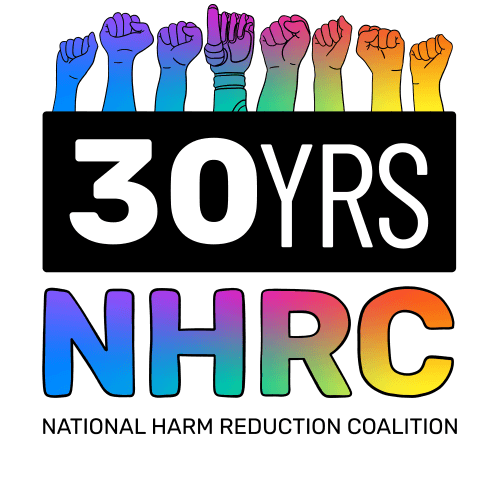Written by: Mike Pomante
Black History Month is a time to honor and commemorate all Black Americans, past and present, and celebrate their profound impact on history, society, and community in the face of injustice, racism, and oppression. Over the next few weeks, National Harm Reduction Coalition (NHRC) looks forward to spotlighting Black harm reductionists who have made significant contributions to the movement and used their voices to uplift the experiences of people who use drugs.
We begin with honoring Keith Cylar (April 18, 1958 – April 5, 2004), who was co-founder and co- president of Housing Works, a New York City-based HIV/AIDS service provider committed to ending the dual crises of homelessness and AIDS. In 1987, while visiting NYC’s LGBT Community Center, Cylar discovered ACT UP and quickly became an outspoken and energizing member, leading its housing committee, which laid the foundation for Housing Works.
Agitator, activist, person who used drugs, community organizer, investigator, therapist, and fearless warrior, Cylar was a fierce advocate for under-resourced people and communities. Few committed themselves as entirely as Cylar to lifting up the voices and experiences of people living with HIV/AIDS, Black, Indigenous and People of Color (BIPOC) folks, queer people, forgotten folx, people who use drugs, and people experiencing homelessness. Cylar lived out loud, leading street demonstrations and protests to advocate for the safety, health, and wellbeing of disenfranchised people and underserved communities. He never backed down from confrontation and battled frequently with government and health officials to save the lives of people whose voices were being dismissed.
Cylar’s concern for the health, wellness, and dignity of people who use drugs stemmed from his own personal lived experiences. At Housing Works, Cylar pioneered harm reduction strategies that encouraged people who use drugs to take the lead in establishing programs and policies designed to serve them. Cylar sat on numerous boards, including with NHRC. He coined the term “pleasure activism” as a feel-good approach to transforming society and making the world a better place for everyone.
More about Keith’s life and legacy:
Beat Goes On
National Black Justice Collective Ubuntu – Keith Cylar
Quotes from or about Keith Cylar:
“I became part of a community and I watched my community disintegrate…I wanted to keep people from dying. I needed to fight against this thing that was killing us and killing me,” he told The Villager newspaper.
“He was loud when others remained silent,” said Dennis deLeon, the executive director of the Latino Commission on AIDS, in a written statement. “He could shame any bureaucrat into action by any means necessary. He put his body in harm’s way on countless occasions, spending innumerable hours behind bars to try to wake people up to injustice. He consoled the families of countless friends who were clients who had lost loved ones. There are few people who worked as tirelessly as Keith on behalf of the poor, LGBT people, men and women who use drugs, the homeless, the disenfranchised, people with HIV, people of color, and just about anybody who did not have a voice.”
“He was one of my heroes,” said Jennifer Flynn, director of the New York City AIDS Housing Network. “I daresay he was the most important person in the AIDS housing field. If you were not doing something that would benefit homeless people with AIDS, he would sure let you know that. He was the movement’s moral barometer.”
One day in 1989, while at the Lesbian, Gay, Bisexual and Transgender Community Center on W. 13th St., Cylar noticed an ACT UP literature table set up outside the first floor meeting room where the group was meeting. “[I saw] all these guys in black leather jackets,” he said. “It was the lit that made me stop. It was the black leather jackets that pulled me into the room.” Cylar quickly made a mark on the group, helping to found its Housing Committee. “From that point on it all blurs for me,” he told Gay City News, a sister newspaper of The Villager, last year. “ACT UP became six days a week, seven days a week…It was 24, seven, nonstop…I became part of a community and I watched my community disintegrate…I wanted to keep people from dying. I needed to fight against this thing that was killing us and killing me.”
